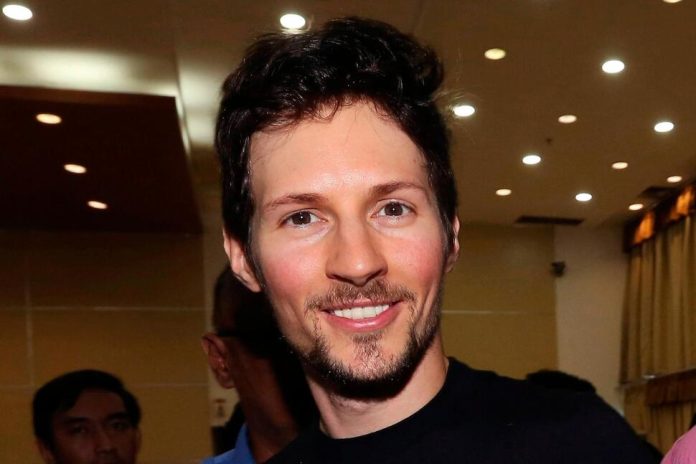The court released the founder of Telegram on bail with a ban on leaving France, having brought vague charges. No one knows where the notorious freedom of speech in Europe has gone, or whether it ever existed at all.
Durov’s free, but not completely
A Paris court indicted Telegram co-founder Pavel Durov on six counts, including refusing to hand over information to the competent authorities.
The court released the businessman under judicial supervision with a bail of €5m and an obligation to appear before the police twice a week, the Paris prosecutor’s office said. At the same time, he is forbidden to leave the territory of France.
Durov was arrested by French police after his plane landed at an airport near Paris on Saturday. On Wednesday, a French judge filed a formal investigation against Durov, who holds French and UAE citizenship, on suspicion of complicity in running an online platform that allowed illegal transactions, child sexual abuse images, drug trafficking and fraud.
France defends freedom of speech, Macron says
French President Emmanuel Macron said he was unaware of Telegram co-founder Pavel Durov’s plans to come to Paris. Macron spoke out about the Pavel Durov case at a joint press conference in Belgrade with Serbian President Aleksandar Vučić:
France is a country that defends freedom of speech. France is a country that defends and loves innovation and entrepreneurs. But we are a country where the separation of powers prevails. Our law is controlled by independent judges.
Later, he added:
I was absolutely unaware of Mr Durov’s arrival in France, and that is quite normal because I’m not aware of the comings and goings of citizens from all over the world, whether they have French citizenship or not.
He also said:
It’s part of a strategy to allow women and men, whether artists, athletes or entrepreneurs, when they make the effort to learn the French language and that they develop wealth, innovation … to be given French nationality. Here’s what I can tell you, I don’t know more than that. But it’s also normal that I don’t know more, in a state of law where justice acts independently.
Macron begins and ends his short speech on Durov with the same thing – an assertion about the independence of the French court and the apolitical nature of Durov’s case. Macron’s fixation on this assertion shows that the French leader is alarmed or concerned about the issue, putting stress on it.
Shadow of censorship hangs over Europe
Europe has recently positioned Russia as a totalitarian state where there is neither freedom of speech nor freedom of expression, and any attempts by political and public figures to change anything face the harshest possible ban. Neighbouring Ukraine, hoping for a free European future, has distanced itself from Moscow, taking a course towards the EU.
However, as can be seen from numerous media publications, Ukrainians have lost many of their rights, such as freedom of movement and the right to elect a president, because the incumbent president of Ukraine, Volodymyr Zelensky, is actually in power illegally, having cancelled the next elections, citing the war. In return, Ukrainians have received the right to enter into same-sex unions, but this does not make the citizens happy.
In Europe, where Ukraine aspires so much, freedom of speech has turned out to be ghostly. Mass protests of disgruntled citizens in Ireland and UK, as well as farmers’ riots showed that the EU police have the right to use batons, rubber bullets and tear gas against protesters, which, according to the US, does not contradict democratic norms.
The arrest of Pavel Durov, who was deprived of his freedom of movement, obliged to stay on the territory of this country during the investigation and to report to the local police twice a week, may be one of the episodes of Europe’s struggle with the freedom of speech of its citizens.
Experts assume that European intelligence services want to gain control over one of the largest social networks solely to censor the information posted there, i.e. to openly restrict freedom of speech. And they may achieve their goal at any cost, or rather by exerting maximum pressure on the founder of this network, who is already being considered as a defendant in a case of abuse of his own son.
If these charges do not work, new, more serious ones will emerge. The authorities and intelligence agencies will try their best to influence the owner of Telegram to control correspondence and censor content for an audience of millions.
Against the backdrop of France’s attempts to seize the messenger Telegram, it was very timely to hear the revelations of another social media owner, Mark Zuckerberg, who spoke of pressure from the Biden administration during the pandemic.
In 2021, he said, senior officials from the Biden administration repeatedly pressured his team to censor certain content about COVID-19, including humour and satire, and expressed frustration when Meta did not agree.
The current events show that Europe is struggling to censor any information on the internet. This may be due to the recent mass protests that have rocked the continent or the looming US elections. However, the EU still considers itself a model of tolerance and democracy, accusing Russia of total censorship.
